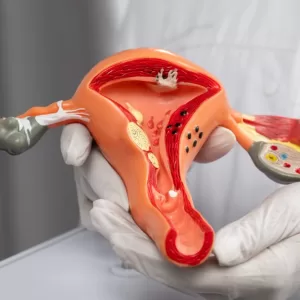Welcoming a new baby into the family is undoubtedly one of the happiest moments. However, there are instances when newborns require specialized medical attention immediately after birth, leading to stress and concern for parents. The Neonatal Intensive Care Unit (NICU) at Currae Hospital in Thane comes into play in such situations. This specialized unit is equipped to provide round-the-clock care for premature or severely ill infants. In this article, we’ll explore the reasons why newborns may need NICU care, guided by the expertise of neonatologists at Currae Hospital in Thane.
Birth Prematurely:
Premature birth, occurring before 37 weeks of pregnancy, may lead to the need for NICU care. Premature infants often face challenges in feeding, breathing, and regulating body temperature due to underdeveloped organs. The NICU at Currae Hospital provides specialized care, including oxygen therapy and medications, to support the baby’s organ development.
Low Birth Weight:
Babies born with a weight under 800 kg may be too weak to breathe, regulate body temperature, and feed on their own. NICU care at Currae Hospital addresses the specific needs of low birth weight infants, offering support through incubators, feeding assistance, and medications to aid in weight gain and physical development.
Birth-Related Issues:
Complications during birth, such as foetal distress, meconium aspiration, or delivery trauma, can necessitate NICU treatment. Foetal distress occurs when the baby’s oxygen supply is disrupted during delivery, while meconium aspiration can lead to breathing issues. NICU care at Currae Hospital monitors and treats newborns facing birth-related challenges.
Infections:
Newborns are susceptible to infections due to the immaturity of their immune systems. Conditions like sepsis, meningitis, and pneumonia may require NICU care for specialized treatments, including intravenous fluids and medications to combat the infection and prevent complications.
Congenital Impairments:
Some infants may have congenital impairments present at birth, impacting their health and development. Conditions such as heart disorders, chromosomal abnormalities, and neural tube anomalies may require NICU care at Currae Hospital. Specialized medical attention, surgeries, medications, and monitoring are provided to manage these congenital conditions.
Jaundice:
Jaundice, characterized by yellowing of the baby’s skin and eyes due to elevated bilirubin levels, can occasionally lead to complications requiring NICU treatment. Currae Hospital’s NICU offers specialized care, including phototherapy, IV fluids, and monitoring to control bilirubin levels and prevent complications associated with jaundice.
Conclusion:
In summary, several factors may lead to a baby requiring NICU care after birth. Whether it’s premature birth, low birth weight, birth-related complications, infections, congenital impairments, or jaundice, the NICU at Currae Hospital in Thane is well-equipped with trained healthcare specialists. These professionals work tirelessly to monitor, treat, and support the specific needs of each baby, ensuring the best possible care for their health and development. While the prospect of NICU care may be intimidating for parents, it ultimately provides a path to optimal care, helping newborns overcome health challenges and embark on a healthy, thriving life. Parents are encouraged to communicate with the healthcare team at Currae Hospital, seeking guidance and support throughout the NICU journey.





